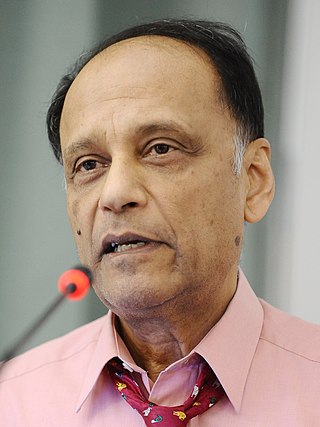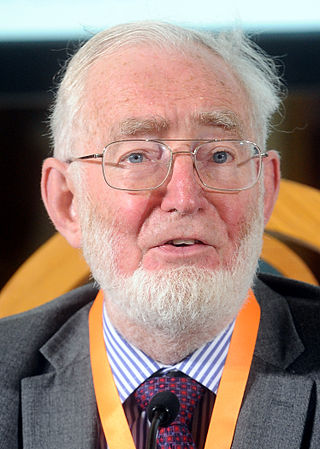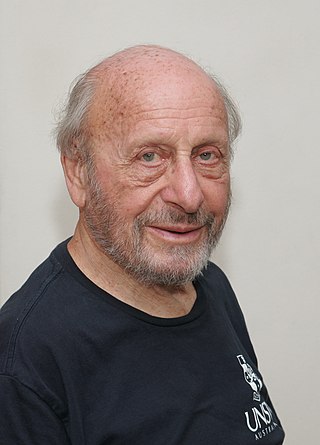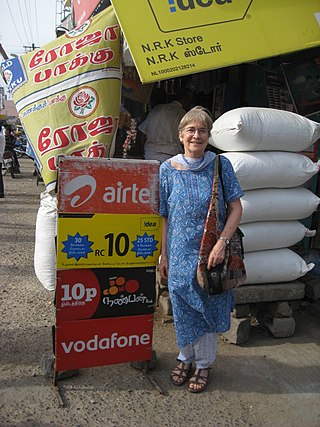Ian Stuart Gazeley, [1] FAcSS, is an economic historian specialising in poverty and nutrition in Britain.
Ian Stuart Gazeley, [1] FAcSS, is an economic historian specialising in poverty and nutrition in Britain.
He completed an undergraduate degree in Economics and Economic History at the University of Warwick and then a doctorate (DPhil, 1984) in Modern History at St Antony's College, Oxford, with a thesis entitled The standard of living of the working classes, 1881–1912: The cost of living and the analysis of family budgets. He then held a Prize Research Fellowship at Nuffield College, Oxford, before joining the University of Sussex in 1985; until 2018, he was Professor of Economic History there, and has since been an emeritus professor in the History Faculty. In 2016, he was elected a Fellow of the Academy of Social Sciences. [2] In 2018, Gazeley took up a visiting professorship in the Department of Economic History at the London School of Economics. [3]
Gazeley's published works include: [4]
Poverty in Britain, 1900–65
Work and Pay in Twentieth-Century Britain
Development economics is a branch of economics that deals with economic aspects of the development process in low- and middle- income countries. Its focus is not only on methods of promoting economic development, economic growth and structural change but also on improving the potential for the mass of the population, for example, through health, education and workplace conditions, whether through public or private channels.

Sir Partha Sarathi Dasgupta is an Indian-British economist who is Frank Ramsey Professor Emeritus of Economics at the University of Cambridge, United Kingdom, and a fellow of St John's College, Cambridge.
George C. Peden is an emeritus professor of history at Stirling University, Scotland.

Sir Anthony Barnes Atkinson was a British economist, Centennial Professor at the London School of Economics, and senior research fellow of Nuffield College, Oxford.

The Institute of Development Studies (IDS) is a research and learning organisation affiliated with the University of Sussex in Brighton, England, and based on its campus in Falmer, East Sussex. It delivers research and teaching in the area of development studies.
George R. Boyer is Professor of Labor Economics in the School of Industrial and Labor Relations at Cornell University. He is best known for his work in the field of economic history, and in particular his research on the English poor laws of the 18th and 19th centuries.

Geoffrey Colin Harcourt was an Australian academic economist and leading member of the post-Keynesian school. He studied at the University of Melbourne and then at King's College, Cambridge.

Erik Thorbecke is a development economist. He is a co-originator of the widely used Foster-Greer-Thorbecke poverty measure and played a significant role in the development and popularization of Social Accounting Matrix. Currently, he is H. E. Babcock Professor of Economics, Emeritus, and Graduate School Professor at Cornell University.
Kevin Hjortshøj O'Rourke, is an Irish economist and historian, who specialises in economic history and international economics. Since 2019, he has been Professor of Economics at New York University Abu Dhabi. He was Professor of Economics at Trinity College, Dublin from 2000 to 2011, and had previously taught at Columbia University and University College, Dublin. From 2011 to 2019, he was Chichele Professor of Economic History at the University of Oxford and a Fellow of All Souls College, Oxford.
Selina Todd is an English historian and writer. From 2015, she has been Professor of Modern History at the University of Oxford. Todd's research focuses on the history of the working-class, women and feminism in modern Britain. Since 2017, Todd has also been president of the Socialist Educational Association.
Ross Ian McKibbin, FBA is an Australian academic historian whose career, spent almost entirely at the University of Oxford, has been devoted to studying the social, political and cultural history of modern Britain, especially focusing on Labour politics and class cultures.
Donald Norman Winch, was a British economist and academic. He was Professor of the History of Economics at the University of Sussex from 1969 to 2000, and its Pro-Vice-Chancellor from 1986 to 1989.
Claire Louise Langhamer, FRHistS, is a social and cultural historian of modern Britain.
Martin Francis is a British-American academic historian. He was Henry R. Winkler Professor of Modern History at the University of Cincinnati from 2003 to 2015, when he was appointed Professor of War and History at the University of Sussex.

Barbara Harriss-White is an English economist and emeritus professor of development studies. She was trained in geography, agricultural science, agricultural economics and self-taught in development economics. In the 1990s, she helped to create the multi- and inter- disciplinary thematic discipline of development studies in Oxford Department of International Development; and in 2005-7 founded Oxford's Contemporary South Asia Programme. She has developed an approach to the understanding of Indian rural development and its informal economy, grounded in political economy and decades of what the economic anthropologist Polly Hill called ‘field economics’.
Donald Read was a British historian. He was emeritus Professor of Modern English History at the University of Kent and in 1988 was appointed to write the authorised history of Reuters. Read died in 2018 at the age of 88 in Blackpool.
The Department of Economics is an academic department of the University of Oxford within the Social Sciences Division. Relatively recently founded in 1999, the department is located in the Norman Foster-designed Manor Road Building.